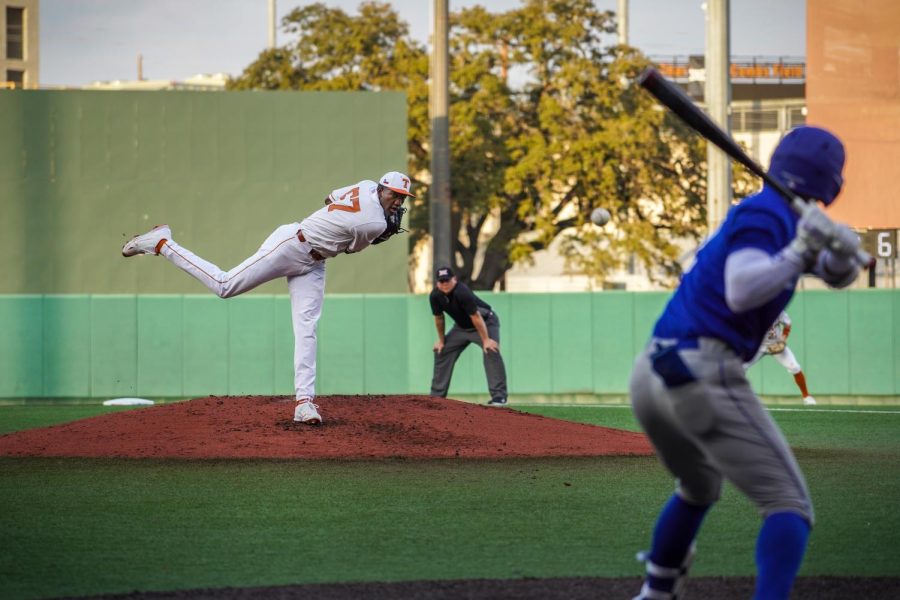Whose rule is it anyway?: Rule modifications inspired by MiLB have taken over NCAA baseball
March 7, 2023
For the past few years, Major League Baseball commissioner Rob Manfred had rumored that the league was destined for change. The call for change had been a priority for the MLB and the Joint Competition Committee, which is composed of club representatives, players and an umpire, as they voted to pass several rule changes before this season. Similar rules, like the implementation of the pitch clock, have existed in college for a few years, but they continue to be met with pushback from the NCAA’s top programs.
“It’s ruining the game,” Arkansas head coach Dave Van Horn said. “I think it takes away from putting in different types of coverages or if you want to change one during the at-bat, you don’t have any time. It’s not the same game.”
The 20-second pitch clock is one of the most controversial and impactful rule changes, and the measure was passed in the MLB last September, along with the banning of the shift and adding larger bases.
In the minor leagues, there is a 14-second timer between pitches with the bases empty. With a runner, the time is adjusted to 18 seconds (19 for Triple-A). Since its implementation, the average game has decreased from three hours to just over two and a half hours — a stark difference after its inception in the 2015 season.
To improve pace-of-play in the college game, the pitcher’s motion must start before the 20-second mark with runners on base. If violated, an automatic ball will be called. However, most fans would be surprised to hear that the pitch clock has been in effect in college baseball since 2020. Nevertheless, new modifications to these rules passed last August have come with controversy in the 2023 college baseball season already.
A new modification to the pitch clock rule involves the batter’s cooperation with the pace of the game. Essentially, the batter must be in the box within 10 seconds after the pitcher’s toss. If the batter doesn’t obey, an automatic strike will be called.
This was already met with contention when LSU faced Kansas State in the Round Rock Classic on Feb. 24. On a 1-2 count and the Wildcats down to their last strike, the game was concluded due to the batter’s lack of cooperation in the box.
Rules violations also affected Texas when clashing against its old Southwestern Conference rival, Arkansas, in the College Baseball Showdown at Globe Life Field on Feb. 17. In the bottom of the sixth inning, junior outfielder Dylan Campbell was rung up for being outside of the box past the limit. In a no-score game with a 2-2 count, the inning was terminated in an anticlimactic fashion.
Baseball fans like Noah Pineda, a freshman journalism major at UT, have tried to look at these new rules with an open mind.
“The new pace-of-play rules aren’t great; the only thing I do like is that pitchers can’t abuse stepping off the mound,” Pineda stated.
As for Texas, these rule modifications will command necessary mental adjustments for a roster that’s off to a rocky start at 5-7 on the season.



